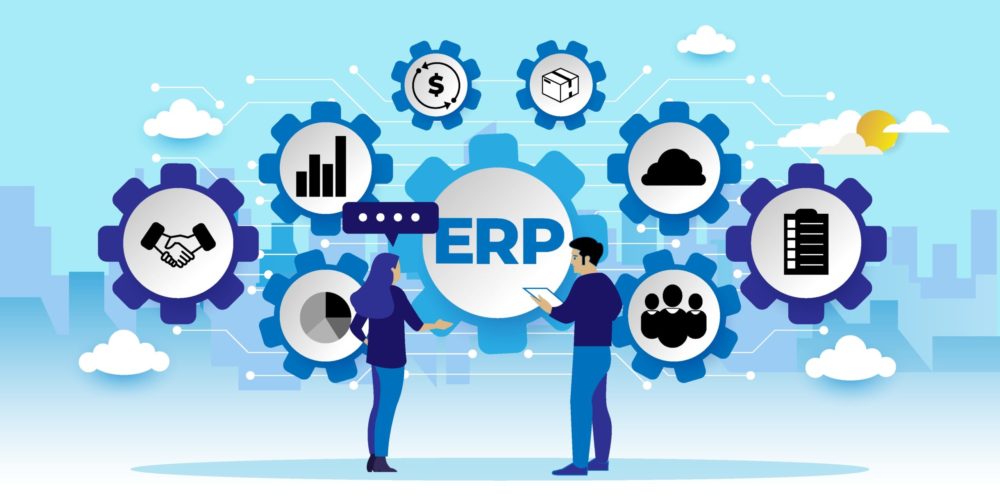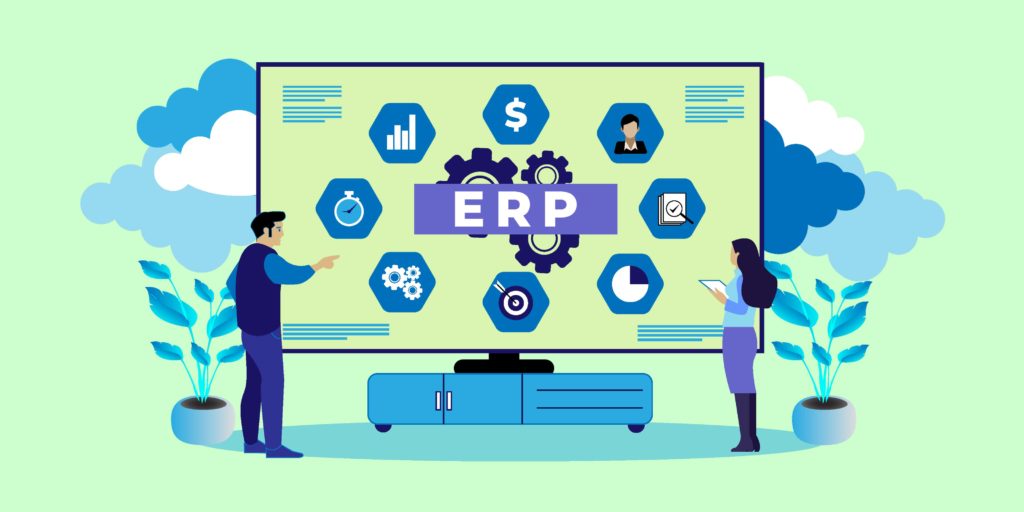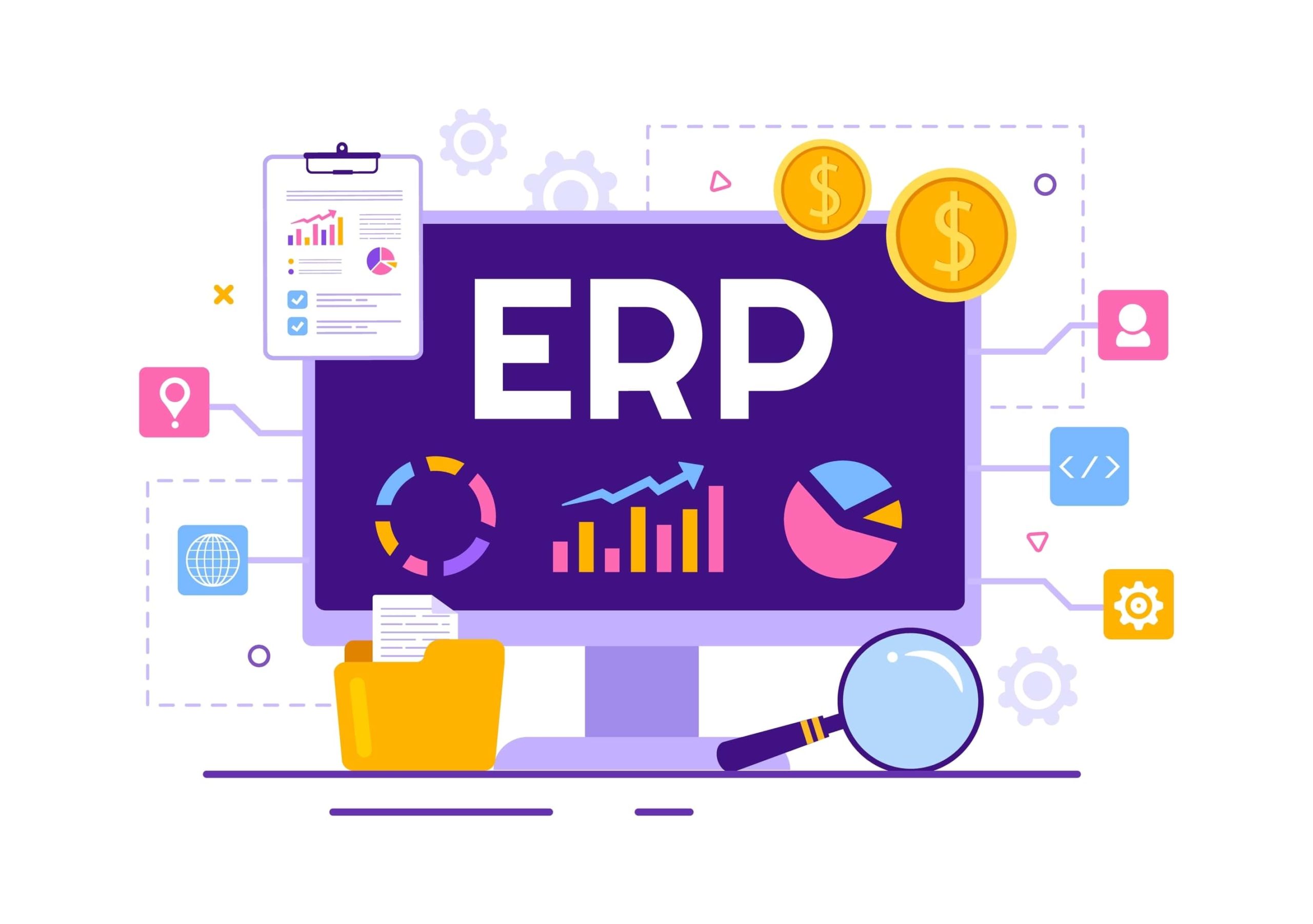Are you a business owner looking to streamline your operations and harness the power of cloud technology? Then it’s time to demystify Cloud ERP or Enterprise Resource Planning. In this blog post, we will explore what Cloud ERP is and how it can revolutionize your business processes. With our expertise as NetSuite Partner Consultants, we’ll guide you through the ins and outs of this game-changing solution. Let’s dive in!
What is Cloud ERP?
Cloud ERP is a solution that combines enterprise resource planning software with the power of cloud computing. It allows businesses to access and manage their ERP application through a cloud platform hosted offsite by a managed provider. This offers numerous benefits, including increased accessibility, scalability, and cost savings compared to traditional on-premise deployments.
With Cloud ERP, businesses can leverage the flexibility and agility of public clouds while enjoying the security and control of separate software instances. Leading vendors like SAP, QAD, Epicor, and NetSuite offer robust Cloud ERP solutions that revolutionize companies’ operations in today’s digital landscape. By partnering with SCG Team for Cloud ERP implementation and optimization strategies tailored to your business needs, you can maximize the potential of this powerful solution for your operations.
Understanding the Basics of Cloud ERP
Cloud ERP, a software solution that encompasses enterprise resource planning (ERP) applications, is gaining popularity due to its accessibility and numerous benefits. Unlike traditional on-premise ERP systems, cloud ERP operates on a cloud computing platform, allowing businesses to access their data and applications via the Internet. A cloud ERP solution’s key components and architecture are managed offsite by a provider in public clouds, separate from the company’s infrastructure. This deployment model offers scalability and flexibility while reducing hardware maintenance and upgrade costs.
Key Features and Benefits of Cloud ERP
Scalability and flexibility for growing businesses: Cloud ERP offers the ability to scale your operations as your business grows, ensuring you have the necessary resources and capabilities to meet increasing demands. With a cloud computing platform, you can easily add or remove users, modules, and features to align with your evolving needs.
Real-time data access and analytics capabilities: By leveraging a cloud ERP solution, you can access real-time data from anywhere with an internet connection. This enables faster decision-making based on accurate information. Additionally, built-in analytics tools provide valuable insights into key metrics and trends, empowering you to make data-driven decisions for improved efficiency and performance.
Cost savings through reduced infrastructure requirements: With cloud ERP hosted offsite by a managed provider like SAP or QAD, separate software installations or dedicated hardware servers are unnecessary. This eliminates upfront capital expenditures on equipment while reducing ongoing maintenance costs. By embracing public clouds like Epicor or NetSuite instead of maintaining an on-premise deployment model, businesses can achieve significant cost savings regarding infrastructure expenses.
Common Misconceptions about Cloud ERP

Cloud-based solutions are often misunderstood as a security concern in cloud ERP. However, with advancements in cloud computing platforms and public clouds, providers like SAP and QAD offer robust security measures to protect data stored offsite. In reality, hosting an ERP application on a managed cloud platform can enhance accessibility and benefit businesses.
Another common misconception about cloud ERPs is the perception of a lack of control due to off-site data storage. Cloud platforms like Epicor and NetSuite allow businesses full visibility and control over their enterprise resource planning processes. With real-time access to data through the Internet, companies can make informed decisions from separate locations while maintaining centralized management.
Contrary to popular belief, ample customization options are available for cloud ERPs such as Oracle | NetSuite. While it’s true that some limitations may exist compared to on-premise deployments, modern software solutions offer flexible configuration capabilities tailored to specific business needs. Companies can leverage the power of cloud computing by customizing their ERP applications without compromising performance or scalability.
Cloud ERP vs. On-Premise ERP: Which is Right for Your Business?
Differences in deployment models, costs, maintenance, and upgrades are crucial in determining whether cloud ERP or on-premise ERP fits your business. While cloud ERP offers accessibility and cost benefits through a managed software solution hosted offsite by a provider like SAP or QAD on public clouds, on-premise ERP allows for more control over the software and hardware infrastructure. Considerations based on business size and industry-specific needs should also be considered when deciding between the two options. Additionally, future scalability and growth potential are important as businesses expand their operations.
Cloud ERP provides accessibility and cost benefits through a managed software solution hosted offsite by providers like SAP or QAD on public clouds. On the other hand, choosing an on-premise ERP solution allows for more control over software customization but requires additional resources for maintenance and upgrades. When selecting between these deployment models, business size, industry-specific needs, cost of implementation, and future scalability considerations should all be weighed.
Selecting the Right Cloud ERP Solution for Your Business
When selecting the right cloud ERP solution for your business, it’s important to consider a few key factors:
- Deployment Model: Determine whether you want a hosted or managed solution and prefer an offsite or separate deployment model.
- Accessibility: Look for a cloud platform that offers easy internet access and allows users to work from anywhere.
- Vendor Expertise: Choose a reputable vendor with experience in enterprise resource planning (ERP) applications like SAP, QAD, Epicor, or NetSuite.
- Benefits of Cloud Computing: Take advantage of the benefits offered by cloud computing platforms, such as scalability, cost-effectiveness, and flexibility.
By considering these factors when selecting your cloud ERP solution, you can ensure that it aligns with your business’s unique needs and goals.
Implementing Cloud ERP: Best Practices and Considerations
When implementing cloud ERP, there are several best practices and considerations to keep in mind:
- Choose the right cloud ERP solution for your business needs, considering scalability, functionality, and integration capabilities.
- Ensure your chosen cloud platform is secure and reliable, with regular backups and disaster recovery plans.
- Define clear goals and objectives for your cloud ERP implementation project to ensure a smooth transition.
- Train employees on how to effectively use the new system and provide ongoing support to address any issues or questions that may arise.
Real-World Examples of Successful Cloud ERP Implementations
Epicor, a leading ERP software provider, successfully implemented its cloud ERP solution for a manufacturing company. By migrating from an on-premise deployment model to a hosted cloud platform, the company achieved increased accessibility and scalability. The cloud ERP solution streamlined their operations and improved collaboration between departments, resulting in higher efficiency and productivity.
QAD, another prominent ERP vendor, implemented its cloud-based ERP application for a global distribution company. With the flexibility of the public clouds and managed offsite hosting by QAD’s trusted provider, the company experienced seamless integration of its complex supply chain processes. The real-time visibility provided by the cloud platform allowed them to make data-driven decisions quickly and effectively across multiple locations worldwide.
NetSuite, a leading cloud ERP software provider, has also witnessed numerous successful implementations of its solution across various industries. Here are two real-world examples:
1. Fabulous Furs, a growing eCommerce retailer, implemented NetSuite’s cloud ERP to streamline its operations and support its rapid expansion. With NetSuite’s integrated platform, Fabulous Furs could efficiently manage its inventory, sales, and fulfillment processes, improving order accuracy and faster delivery times. NetSuite’s real-time analytics and reporting capabilities allowed Fabulous Furs to gain valuable insights into their customers’ buying behavior, enabling them to make data-driven decisions for targeted marketing campaigns and inventory optimization. As a result, the company experienced significant growth and increased customer satisfaction.
2. Janaway Media, a professional services firm, adopted NetSuite’s cloud ERP to centralize its finance, project management, and resource planning processes. With NetSuite’s robust financial management features, Janaway Media was able to automate its billing and invoicing processes, reducing manual errors and improving cash flow management. The integrated project management module helped them efficiently allocate resources, track project progress, and manage client contracts. By having all their data in one centralized system accessible from anywhere, Janaway Media gained real-time visibility into their financial and operational performance, enabling them to make proactive decisions and drive profitability.
These examples highlight the power of NetSuite’s cloud ERP solution in driving operational efficiency, scalability, and growth for businesses across different industries.
Taking Advantage of Cloud ERP: Tips for Maximizing its Potential
- Maximize the potential of cloud ERP by leveraging its accessibility and benefits. With a cloud computing platform, your ERP application is hosted offsite by a managed provider, allowing you to access it anytime via the Internet. This separate deployment model eliminates the need for costly on-premise infrastructure and provides real-time software updates from your vendor.
- To maximize the potential of cloud ERP, choose a trusted provider like SCG Team. Implement best practices such as proper data migration and integration with existing systems. Leverage public clouds for scalability and flexibility in meeting business demands. By taking advantage of these tips, your business can unlock the full power of cloud ERP for streamlined operations and improved decision-making capabilities.
Partnering with SCG Team for Cloud ERP Success

Partnering with SCG Team for Cloud ERP Success ensures that your business can fully leverage the benefits of cloud computing and enterprise resource planning (ERP). As a trusted provider, SCG Team offers a comprehensive solution that combines accessibility, offsite hosting, and managed services on a robust cloud platform. With expertise in leading ERP applications like SAP, Epicor, and QAD, they tailor the deployment model to your needs. By partnering with SCG Team, you can confidently navigate the complexities of cloud ERP implementation and maximize its potential for your operations.
For businesses looking to tap into the power of cloud ERP, partnering with a trusted and experienced provider is essential. That’s where the SCG Team comes in. As a NetSuite Veteran and Certified Partner Consulting Group, they bring expertise in implementing and maximizing the potential of NetSuite’s cloud ERP solution. With our help, businesses across various industries have streamlined operations, improved decision-making capabilities, and driven growth.
To learn more about how the SCG Team can help your business harness the power of cloud ERP, visit their website and connect with their team. Whether you’re a C-Level Executive, IT Manager, Operations Manager, Sales and Marketing Professional, eCommerce Manager, Financial Controller, or Accountant, the SCG Team has the knowledge and experience to guide you through the complexities of cloud ERP implementation and ensure your success.
Don’t miss the opportunity to take your business to new heights with cloud ERP. Contact the SCG Team today via their site chatbot, email at hello@seibertconsulting.com, or by calling 760-205-5440 or texting 510-962-7465. With our headquarters in Palm Springs, California, and satellite offices in Carlsbad, California, and Boston, Massachusetts, the SCG Team is ready to help businesses nationwide unlock the full potential of cloud ERP.




